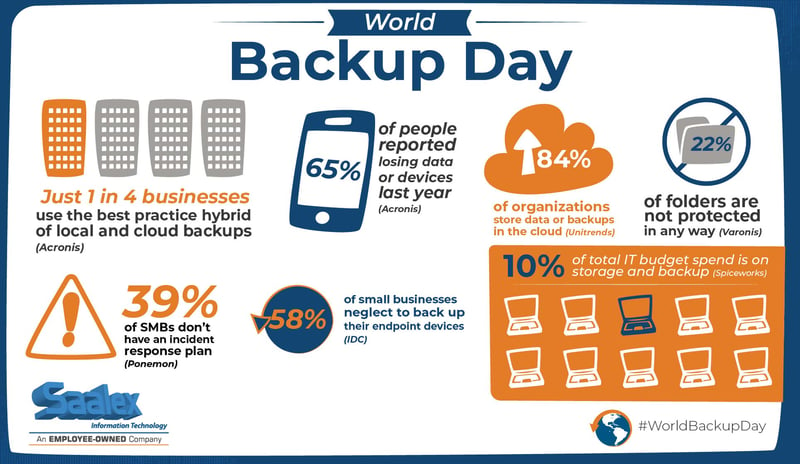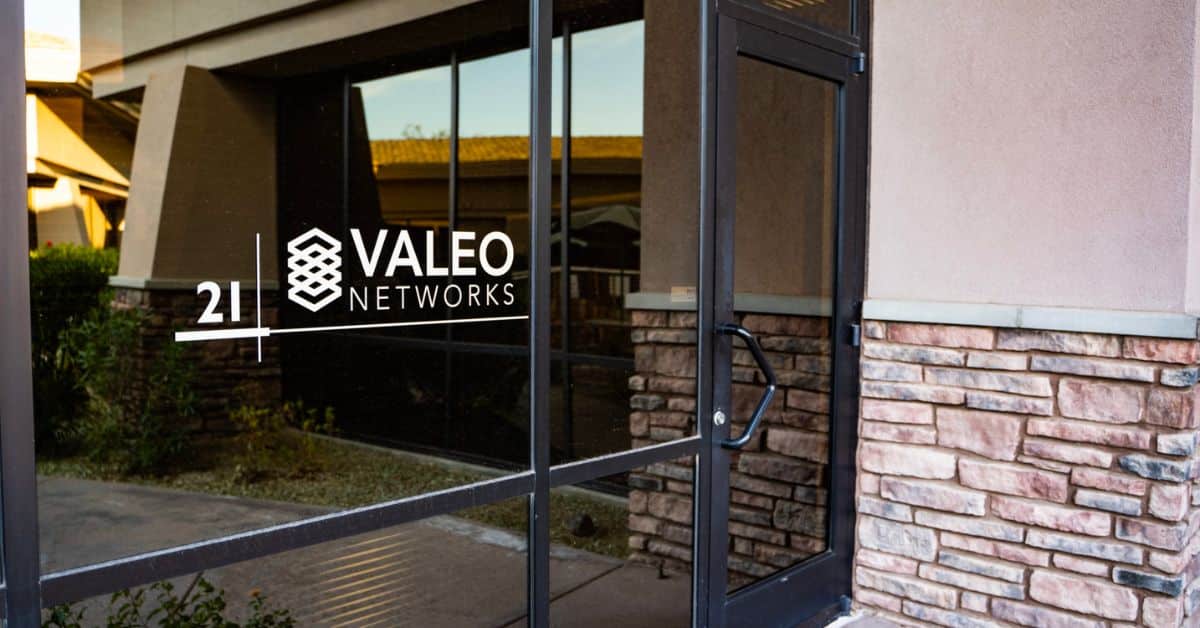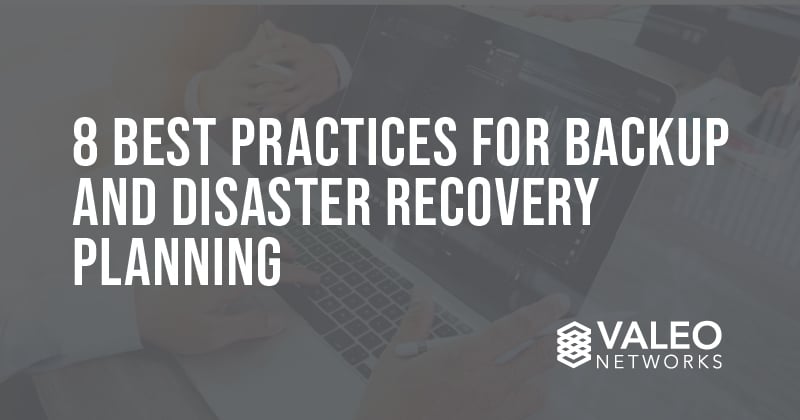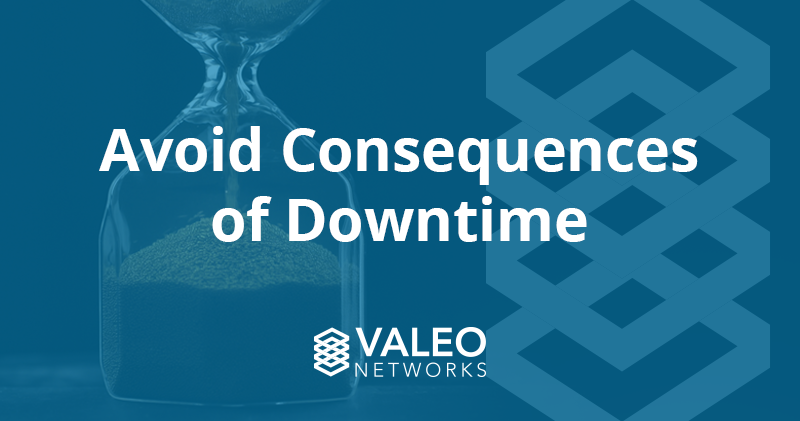Backup vs. Business Continuity
Over the past few years, technology has really come a long way. Tape and disk backup used to be the best option for small/medium businesses (SMBs) to...
On World Backup Day, we look to the increasing use of cloud technology for small to medium-sized businesses (SMB) and share how to best utilize the cloud for data safekeeping. Until recent years, most companies backed up their data locally or at another offsite location. This, however, could still leave information vulnerable to events like hardware failure or natural disasters. The cloud provides a more secure backup option that does not necessarily rely on a physical location. According to a 2019 Unitrends survey, the use of cloud as a data protection strategy has greatly increased over the last four years. It also reports that 84 percent of organizations use the cloud for data storage and backups while small enterprises see even higher adoption rates than mid-size or larger businesses.

When moving sensitive information to the cloud, organizations must develop a comprehensive cloud strategy to protect that data and their businesses as a whole. Rather than simply moving your data to the cloud, it is better to plan, implement and monitor the most appropriate and cost-effective cloud solution tailored to your business. Whether you are working with your internal IT team or a managed security services provider (MSSP), it is important to assess your current IT systems and review various platforms, deployment types and service models. After a complete analysis, we recommend choosing the right cloud platform and technology that best fits your business needs. Post-migration activities should include steps to manage business-critical workloads and infrastructure with ongoing monitoring, patching and administration of your system. Below is a concise overview between types of cloud platforms:
| Type | Key Points | Advantages | Drawbacks |
|---|---|---|---|
| Private Cloud | Unique, custom environment set up and managed just for your organization. Can exist on or off premises. | Provides businesses with extra control over their data. | Added cost to build out infrastructure. IT team needs to accurately predict capacity demands. Long-term purchase. |
| Public Cloud | Services provided by third-party vendors such as Amazon Web Services (AWS) or Microsoft Azure. | Infrastructure is already established. Pay-as-you-go pricing allows for scaling up or down as needed. | Optimizing a business’ cloud or obtaining higher levels of security can be more expensive than originally anticipated. Data shares server space with other businesses. |
| Hybrid Cloud | Combines elements of private and public cloud hosting. | Access to the flexibility and computing power of public cloud for non-sensitive tasks while keeping business-critical applications and data on-premises. | Steep learning curve to manage effectively and requires expertise. Failure to keep best practices increases risk of data breaches or falling out of compliance with regulations. |
Many small to midsize businesses lack the resources or information security staff to develop and implement a comprehensive and secure cloud strategy. That is why outsourcing to a managed security service provider (MSSP) like Valeo Networks may the appropriate solution for your organization. Our experts are adept at leveraging Amazon Web Services (AWS), Microsoft Azure and the private cloud to create a solution that is right for you. Contact Valeo Networks to request your free cloud migration consultation.


Over the past few years, technology has really come a long way. Tape and disk backup used to be the best option for small/medium businesses (SMBs) to...

Taking a proactive approach to backup and disaster recovery planning will safeguard business continuity in the event of an unforeseen incident. With...

In order to really minimize the chance of extended downtime for your business, it’s important to understand and implement a backup and disaster...

With cutting-edge technology and quality customer service,
you’ll find everything you need to help your company soar
with Valeo Networks.
1006 Pathfinder Way
Rockledge, FL 32955
Business Hours:
M-F: 8AM-9PM
© 2026 Copyright Valeo Networks. All Rights Reserved.